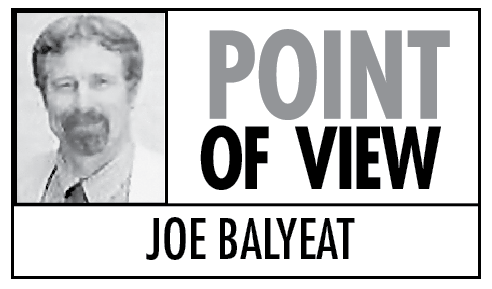“There is no respect in which inhabitants of a low-income neighborhood are so disadvantaged as in the kind of schooling they can get for their children.”
— Nobel Prize-winning economist Milton Friedman
Milton Friedman was devoted to freedom — his belief that human free choices and free markets unfettered by government restrictions produce the happiest, healthiest, wealthiest peoples throughout world history. Friedman’s belief in freedom of choice was nowhere more adamant than in the education marketplace — where government-run monopoly public schools often consign poverty families to multi-generational bondage to local failing education institutions. Alaska is fraught with examples from inner city to remote Native regions.
Yet whenever Alaska education choice advocates push for legislation enabling low-income parents more freedom to place their children in the public or private school of their choice, government unions and educratic special interests immediately claim any reform would violate the Alaska Constitution’s Blaine Amendment — which says “No … public funds for the direct benefit of any religious or other private educational institution.”
Rather than debate the many studies which show that both public and private schools perform better when they are competing against each other on a level playing field, the Alaska education cartel simply hides behind this Blaine Amendment.
In order to pave the way for school choice reform, when they re-convene this month Alaska’s Legislature is considering giving Alaska voters the opportunity to vote on abolishing Alaska’s Blaine Amendment.
School choice reform is only one of the many reasons Alaska should rid itself of the Blaine Amendment.
Consider that the U.S. Supreme Court has already declared that state constitution Blaine Amendments are unconstitutional under the federal Constitution, because the 14th Amendment guarantees equal treatment under laws regardless of whether you are religious or not. No prejudicial discrimination is permitted … either for or against a religious organization.
In Mitchell v. Helms (June 28, 2000) the prevailing Court opinion declared: “Hostility to aid to pervasively sectarian [religious] schools has a shameful pedigree that we do not hesitate to disavow. … Opposition to aid to ‘sectarian’ schools acquired prominence in the 1870’s … the [Blaine] amendment arose at a time of pervasive hostility to the Catholic Church and to Catholics in general, and it was an open secret that ‘sectarian’ was code for ‘Catholic’… Nothing in the Establishment Clause requires the exclusion of pervasively sectarian schools from otherwise permissible aid programs, and other doctrines of this Court [i.e., equal protection] bar it. This doctrine [Blaine Amendment], born of bigotry, should be buried now”.
So, in addition to federal unconstitutionality, the second serious flaw in Alaska’s Blaine Amendment is that it’s rooted in religious bigotry.
The U.S. Commission on Civil Rights conducted a Washington briefing on “The Blaine Amendment & Anti-Catholicism” on June 1, 2007. Panelist Richard D. Komer remarked, “…Blaine Amendments reek of religious discrimination. As such, they are illegitimate relics of a shameful past we have neither adequately acknowledged nor effectively remedied.”
A third flaw with Blaine Amendments is the false narrative that such anti-religious prohibitions are somehow wise or prudent.
Almost 70 years of American history prove repeatedly that religiously neutral student support is effective, efficient and productive.
The GI Bill aids veterans to attend the religious or secular school of their choice with amazing positive results. Child Care and Development Block Grants provide government aid irrespective of the religious (or non-religious) affiliation of the childcare institution with similar positive results. And both federal and state Child Care Tax Credits subsidize parental choice of child care providers with direct credits offsetting expensed regardless of the providers’ religious affiliations.
These are three examples of numerous government aid programs over 70 years which succeeded despite clear diametric conflict with state Blaine Amendments. And the $64,000 question is this: If religiously neutral, competitive, level playing fields are good for college programs, pre-school programs, after school programs, and summertime programs, why aren’t they also good for K-12 regular school programs?
Here’s why: None of these other programs have powerful government unions lobbying against them, opposing any attempts to reform the monopolistic system. That’s the only difference. Politicians need to recognize that key fact and choose sides rather than feigning “constitutionality” crisis issues.
And government union lobbyists need to start debating school choice on the merits of competition. Try refuting the many studies which reveal improved public school performance in school choice marketplaces, rather than clinging to the shameful anti-religious bigotry known as the Blaine Amendment.
Legislators should grant Alaska voters their right to vote on this reeking relic long past its time.
Joe Balyeat (jbalyeat@afphq.org) is the state director for School Choice projects for Americans For Prosperity – Alaska. He is a former Montana state senator and National Merit Scholar. He resides part year in his home near Anchor Point.


